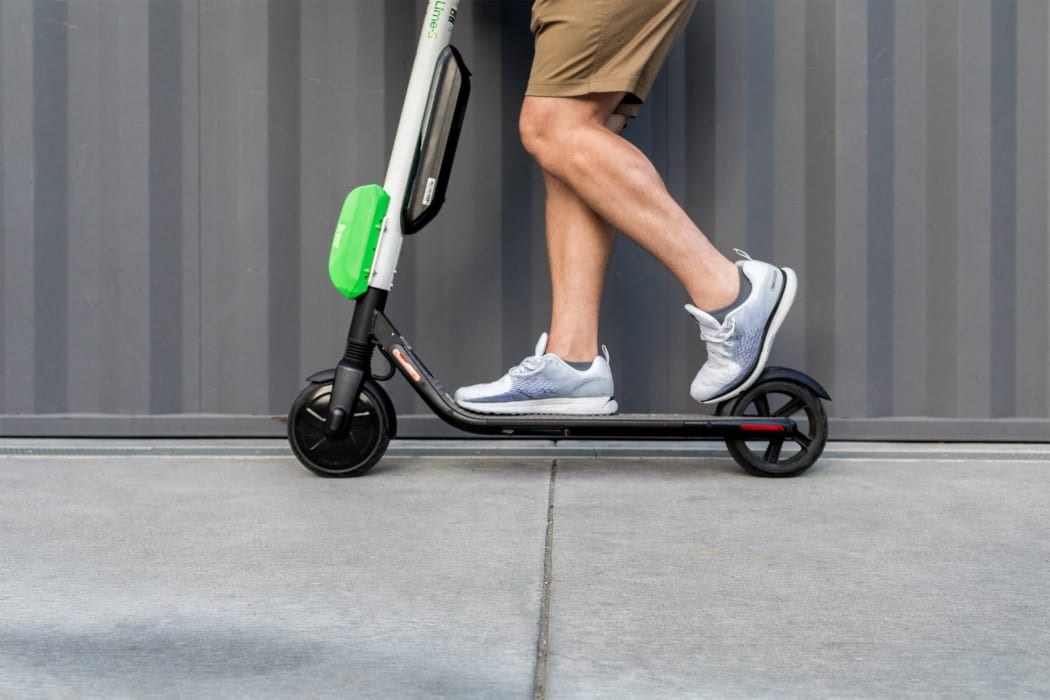E-scooters are coming to the footpaths of Christchurch – and possibly Auckland, too – but infrastructure consultant Louise Baker warns tighter transport regulations may be hot on their wheels.

Photo: LimeBike
Last week, the Christchurch City Council approved a request by the American bike and scooter share company Lime Technology to bring 700 electric-powered scooters to the city for a three-month trial.
The scooter - allowing people to hire a scooter, use it throughout the city and then leave it wherever - will be run by an app similar to the Onzo bike-sharing scheme.
The new scooters are "much like the push scooters you see the kids riding around on, a bit bigger than that but with an electric motor" and they should be a fun, healthy way to get around the city, Baker says.
They're quite hard to ride, she says.
"They take a bit of core strength in making sure you stay balanced, though they might make you more efficient across that distance."
New Zealand will be able to learn from the problems overseas cities have had with e-scooters, such as cluttered-up footpaths, Baker says.
"In San Francisco and in LA… a few of the operations have been shut down or temporarily suspended … because they have been a nuisance, they have been left on the footpaths, they have been left on the entry to the transit stations.
"The deal with Auckland Transport or Christchurch City Council would be that the company make sure that doesn't happen … we want these things to be available, but neatly, and we don't want to be tripping over them.
"We also have got a few challenges here – these things are not bicycles, they're outside the law at the moment.
"The only places we've got speed limits are on our roads and these shouldn't be on the roads.
"They're allowed on the footpaths, but you're not allowed to be a public nuisance … you'd have to talk to police about how that's regulated but you certainly don't want people zipping along at 27kmh or even 15kmh when they're just weaving in and out of people walking."
It will be a wait-and-see situation to figure out whether e-scooters will work for New Zealand, she says.
"We have a few challenges to address and I believe those are the conversations that are going on right now.
"They're there by a loophole and at the courtesy of other users at the moment so make sure you don't push it too far or we could all be off and have nowhere to ride."
New regulations may come into force, Baker says.
"[Lime Technology are] outpacing our infrastructure, which is really designed for what we were doing five years ago, so it is a case of regulation to keep everyone safe and make sure our streets work for everybody, but it's also a case of probably re-assigning some of our infrastructure.
"While they may be operating in a loophole as sort of privately owned e-scooters, they could well see some more regulation coming."
She is not sure exactly when the three-month pilot scheme will start, but it will likely coincide with the onset of summer.
"My guess would be around November, December.
"I think success looks like scooters being available and customers ... riding these things, giving them a try, actually using them.
"Knowing how to use them, as well – if you're a teenager or early 20s you might just think nothing of jumping on an e-scooter and giving it a go, but those of us who are over 40 might want a bit of guidance."
Louise Baker is smart mobility leader at global infrastructure consultancy WSP Opus.

